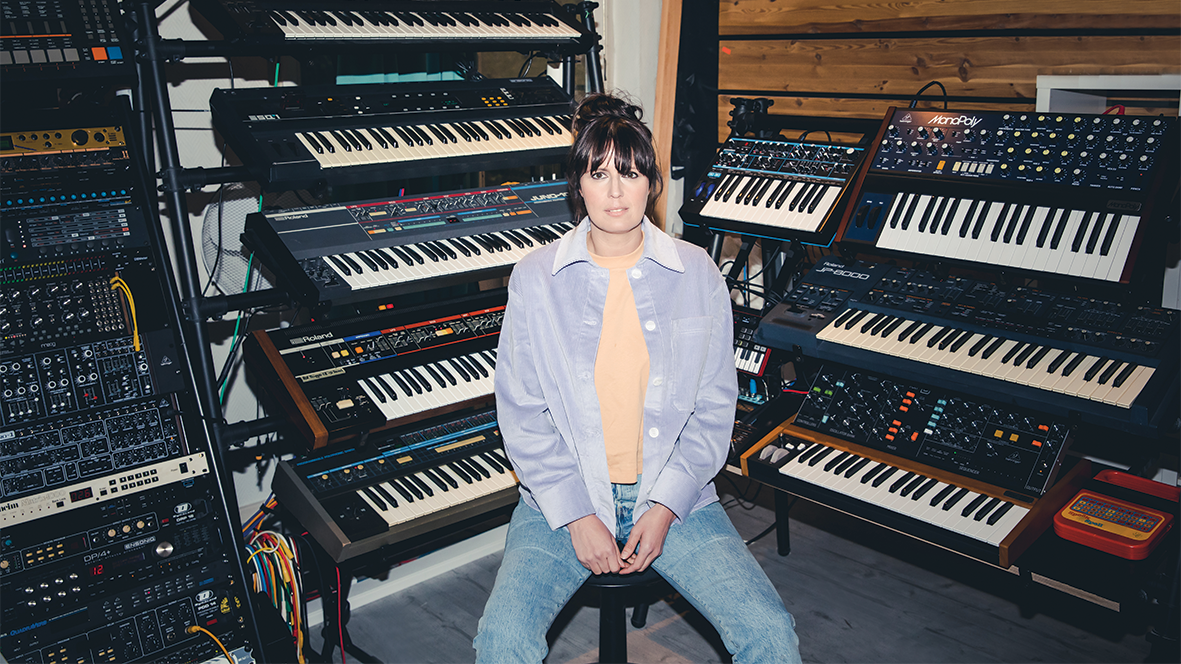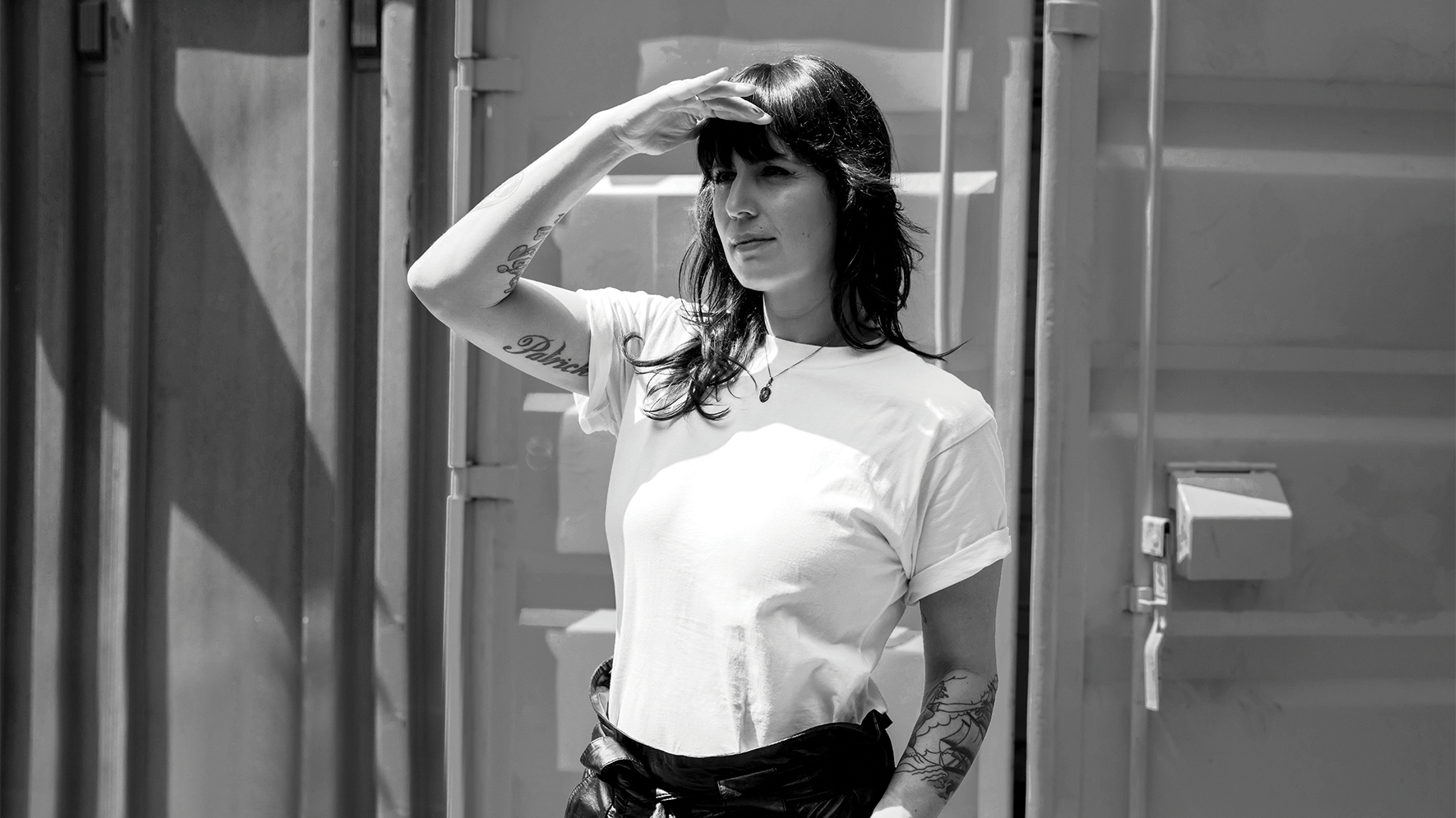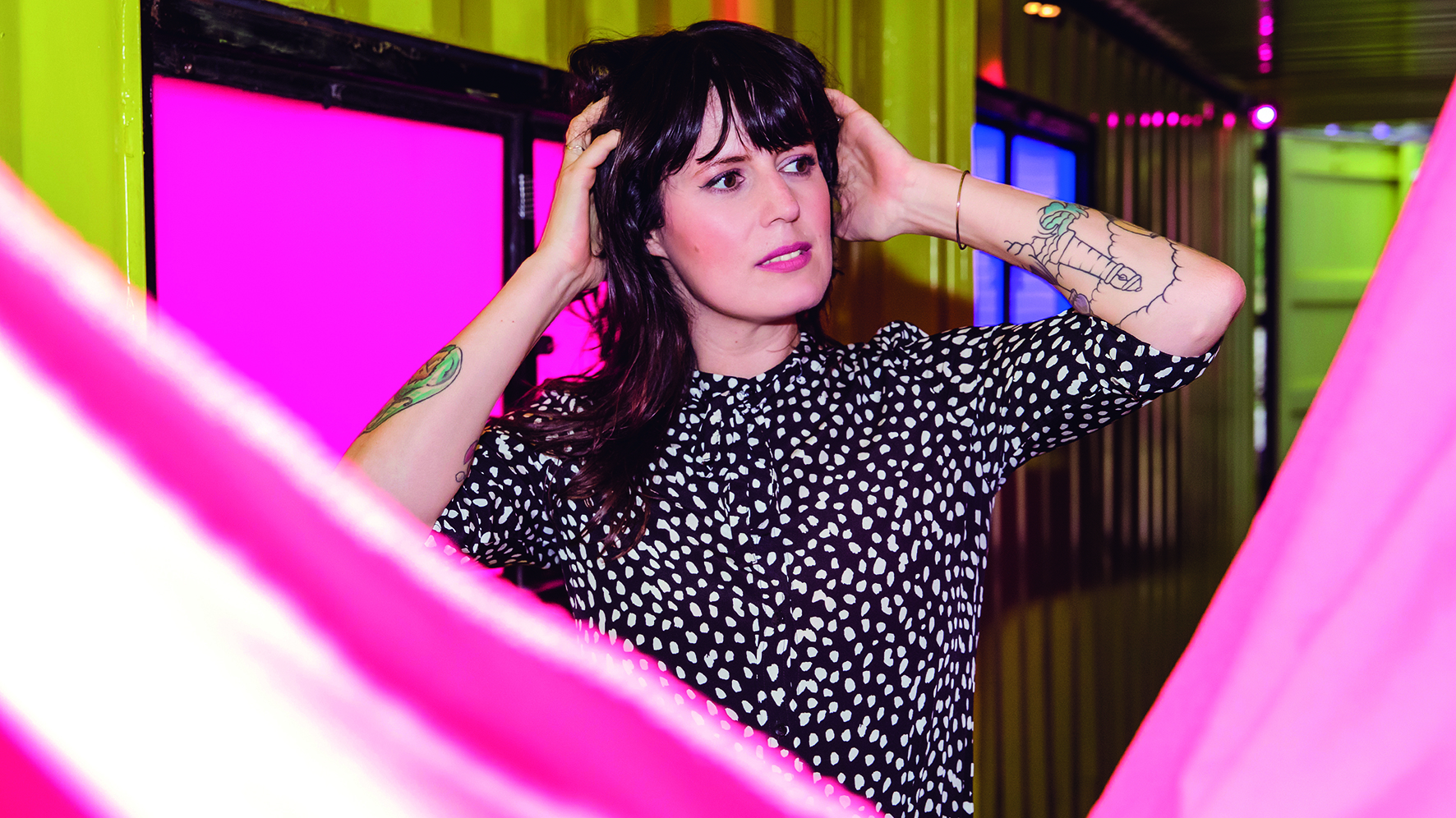Cinthie: "My studio is pretty much a Roland museum. All these old machines are all still very relevant"
As a DJ, producer, label boss and owner of the Elevate record store, Cinthie is a cornerstone of Berlin’s contemporary house scene

Want all the hottest music and gear news, reviews, deals, features and more, direct to your inbox? Sign up here.
You are now subscribed
Your newsletter sign-up was successful
Berlin-based producer Cinthie has deep connections to the storied dance music scene of her home city. As a DJ, she’s been playing in clubs since the mid-’90s, including a spell as a resident at Berlin’s famous Watergate.
As a producer, she’s been refining her raw, hardware-driven sound for over 20 years, releasing a stellar album, 2020’s Skylines – City Lights and a string of EPs for the likes of Aus and Shall Not Fade.
Recent years have also seen Cinthie taking on new challenges as both a label boss, running 803 Crystal Grooves, as well as opening a physical record store, Elevate in Berlin. We've been digging deep into how house music is made this week on MusicRadar, so we caught up with Cinthie to get a 360-degree view of the state of European house.
How would you define house music in 2023? What is it that makes a ‘house’ track?
“House music always works best in its purest form. It’s all about the groove, the uplifting vocals, the bassline, the keys, the chords, the pads… But I believe that after the pandemic the whole of what was formerly so called ‘underground music’ became a lot more commercial. I always said that in house music there is a small step from being cool to being cheesy and commercial. House in 2023 is still house, but I feel like the vocals are becoming increasingly aimed at being radio friendly.”
Tell us about your current studio – what are your go-to instruments and effects right now?
“For the studio I have two approaches at the moment. I use my laptop with Ableton 11 and mostly use built-in devices or Arturia instruments, which are pretty much the same instruments I have in my studio. It comes in very handy to prepare stuff while I’m on tour and then translate them into my studio. My go-to plugins or VSTs at the moment are Ableton’s Wavetable synth – a very powerful instrument – as well as the Juno or Jupiter from Arturia.
Want all the hottest music and gear news, reviews, deals, features and more, direct to your inbox? Sign up here.
“My studio is full of hardware goodies and my forever favourite instrument is the Roland TR-909. It’s super easy to slam out a groove and then go from there, or if you have a bassline idea you can just use it to fill it up with some drums quickly.
“My next go-to instruments have been Roland’s SH-101 and the Juno-60 or 106; I think it’s a very classic combination for house music. But as I don’t want the other instruments to be sad or collect dust, I’m usually rotating with other instruments and try to strengthen my skills with them. I’ve recently used the 808 a lot and even released a more footwork-sounding track on my latest EP for Heist. I love to surprise people with new directions in my productions, because if you always hit the ‘house nail’ it can become quite boring for the audience.
“So I’m always trying to discover new sounds and instruments; my rather new Moog Grandmother has been an absolute beast, and the old Korg MS-20 was super fun to work with recently.”

What’s your usual starting point for a track?
“That really depends. It’s actually just recently changed. I’ve finally been taking piano lessons since the beginning of the year and I have to admit it has opened a whole new world for me.
“I was able to jam a little bit before but since I’m not a classically trained person – playing the triangle in an orchestra as a kid does not really count, right? – it took me very long to find a good chord progression or chords in general. Although, when I double-checked the chords in some older projects, they sounded great although they were a bit out of tune.

Cinthie: "Bassline and kick drum are the most important things in dance music"
“At the moment I try to program a rhythmic piano in the same key usually with Ableton’s Grand Piano, then I move the notes around so I have a nice progression or variation (for example in Piano Heaven also on my latest EP on Heist.) Once I’m happy with the ‘riff’ I’ll take the MIDI notes and put them on the channel of my instrument of choice and work on the sound. Then I’ll program the backbone of the track, aka the drums with the 909, and go from there, adding whatever is needed. High strings, pads, an acid line, bassline etc.
“But as I said before, at the moment I’m trying different things. For example I’m currently working on my new EP for AUS Music and I just finished a more happy hardcore track, which was a lot of fun to do.”
The classic house sound was originally defined by distinctive vintage instruments – particularly Roland’s drum machines, synths and grooveboxes – how important do you think those are to the house sound of 2023?
“Since my studio is pretty much a Roland museum I’m always going back to those old machines. I believe that they are very easy and intuitive to use, hence everyone loved them back in the day. Apart from the 303 maybe, because that one can be very confusing to program to start with, but it’s very logical once you’ve done it a few times.
“As I already mentioned, house music works for me always in its purest form. Hence all these machines are all still very relevant and important. You get an instant groove, and that’s what makes them so fun to work with.
Don’t make the mistake of thinking they all sound great to start with: the 909 always needs a lot of processing as it sounds a bit like a wet fart
“But don’t make the mistake of thinking they all sound great to start with: the 909, for example, always needs a lot of processing as it sounds a bit like a wet fart otherwise (excuse me for that!). Also the 303 sounds boring when you don’t know how to program the notes and let them jump over a few octaves. In my humble opinion though, there is nothing better in a club than a marching 909 drum groove.
“I recently started playing live and it’s still a process of finding the right instruments for me. I don’t really wanna bring any original gear on tour as they’re too fragile and expensive to just get ruined by airlines or a simple beer spilled over them. So I’m always up-to-date with new and very light gear. I like those modern instruments, but sometimes they offer way too many options which can be quite overwhelming, especially for new producers.”
Your studio contains hardware from different eras – what’s the secret to getting them working together in one track? Do you need to process vintage and newer instruments differently?
“Luckily I have a friend who helped me install all the stuff in the studio, so everything is ready to use but a handful of instruments I have to patch if I want to use them. I can pretty much use everything in a track but I’ll always process them in different ways or try out new things. I’m just a big fan of going out of my comfort zone and doing a little bit of trial and error.”
How important is sampling to your process?
“Sampling is very important to me for vocals. I can’t sing and it’s the only thing I need to ‘borrow’ from other people. I’ll usually use Loopcloud and browse through stuff until I’m happy. The good thing is, you can search for a key and then it always fits to your track. I’m still pretty new to this whole vocal processing thing but I believe I’m slowly getting to a point where I can make them sound good and sit right in my tracks.”
Do you have any tips for making tracks sound/hit right on a club sound system?
“Not really; well that’s not true… I do have a few tips. I try to produce in a simple way, which means I’m not adding endless layers of sound which avoids any frequency clashes. On top of that I’m always listening to advice from friends. I met Harry Romero the other day and he gave me the tip to always tune my kick to the track, and he is right, it always gives it this extra strong feel in the track.
“Then of course you need to EQ and process every instrument. I love the FabFilter plugins, or I just put on a simple Ableton Saturator to make sounds more crunchy. But there are millions of ways to add more brilliance to your music. It’s a learning process over many years. I watch a lot of tutorials from a few people to always be up to date.”
Tell us a bit about your approach to DJing…
“My usual setup when I play is two turntables and a mixer. As simple as that, but I also add at least one CDJ to be able to play some new tracks from the stick. To prepare my sets, I simply go through the records in my record bag, move some out, move some in. Since I also own a record store, I try to be always up to date with new music and add the ones I like the most to my sets, mixed with a few old classics or my own tracks.
“Mixing-wise, I keep it simple and try to let the people dance rather than just do the knob fiddling and adding lots of effects. Music of today already has a lot of effects, no need to crank it up with even more, at least not in my house music world.”
House music has long been shaped by lots of shifting sub-genres and trends. As a DJ, label boss and record store owner, what do you think will be the next big trends in house music?
“I personally think that the music will be more uplifting and groovy again. We will move away from the Mickey Mouse edits or the brutal hard techno (I hope) and move over to more ravey stuff. Still kinda fast but a bit more serious. In house, it will be more bouncy. I see a lot of house tunes touching UK garage elements now, which makes them fresh and funky. Let’s see what’s gonna happen in the near future.”
If you had to name one ‘greatest house track of all time’, what would it be?
“Phew, as always this is a very hard question for me! I would probably choose something from Chez Damier or Kerri Chandler.”
Cinthie has upcoming tour dates in the US, UK, and France as well as her native Germany this autumn.


I'm the Managing Editor of Music Technology at MusicRadar and former Editor-in-Chief of Future Music, Computer Music and Electronic Musician. I've been messing around with music tech in various forms for over two decades. I've also spent the last 10 years forgetting how to play guitar. Find me in the chillout room at raves complaining that it's past my bedtime.